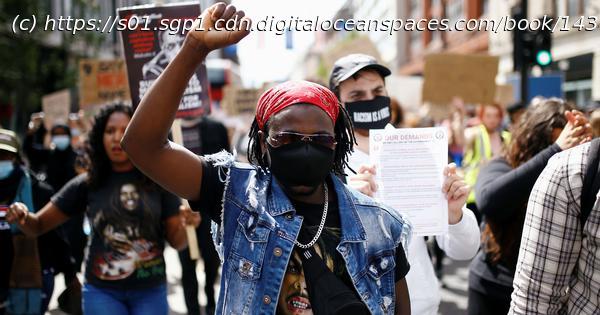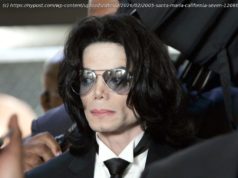The connection between race and music begin with Southern blues and continue through jazz and rhythm and blues.
The sound of Public Enemy’s 1989 song Fight the Power blared as face-masked protesters in Washington, D. C. broke into a spontaneous rendition of the electric slide dance near the White House.
It was the morning of June 14, and an Instagram user captured the moment, commenting: “If Trump is in the White House this morning he’s being woken up by…a Public Enemy dance party.”
Coming amid widespread protests over police brutality and structural racism in the United States, the song is an apt musical backdrop. It opens with a quote from civil rights activist Thomas “TNT” Todd before going into a sample-laden funk rap track referencing past black protest songs from the Isley Brothers and James Brown.
Demonstrators in other parts of the country similarly used hip-hop as a form of sonic protest. In New York, protesters chanted the hook to Ludacris’s 2001 song Move B—- as they were penned in on the Manhattan Bridge by police officers.
Footage of the crowd singing, “Move b—-, get out the way. Get out the way b—-, get out the way” to uniformed officers seemingly got the approval of Ludacris, who reposted a video on his Twitter account accompanied by a raised fist emoji.
No one who has listened to hip-hop since its origins in the 1970s should be surprised that rap music has become the soundtrack to protests in the wake of George Floyd’s killing in Minneapolis on May 25 while in police custody.
Hip-hop artists have protested police violence in their music for decades. In the late 1980s and early 1990s, rappers from different corners of the United States described the brutal and discriminatory police tactics they witnessed in their communities.
Most famous perhaps is N. W. A.’s F— tha Police from 1988. Fellow Los Angeles rapper Ice T faced backlash after his metal band, Body Count, released Cop Killer in 1992.
In the Geto Boys’ Crooked Officer from 1993, the Houston rap group bears witness to racial profiling and police violence in the so-called Dirty South, before asserting: “Mr Officer, crooked officer, I wanna put your ass in a coffin, sir.






